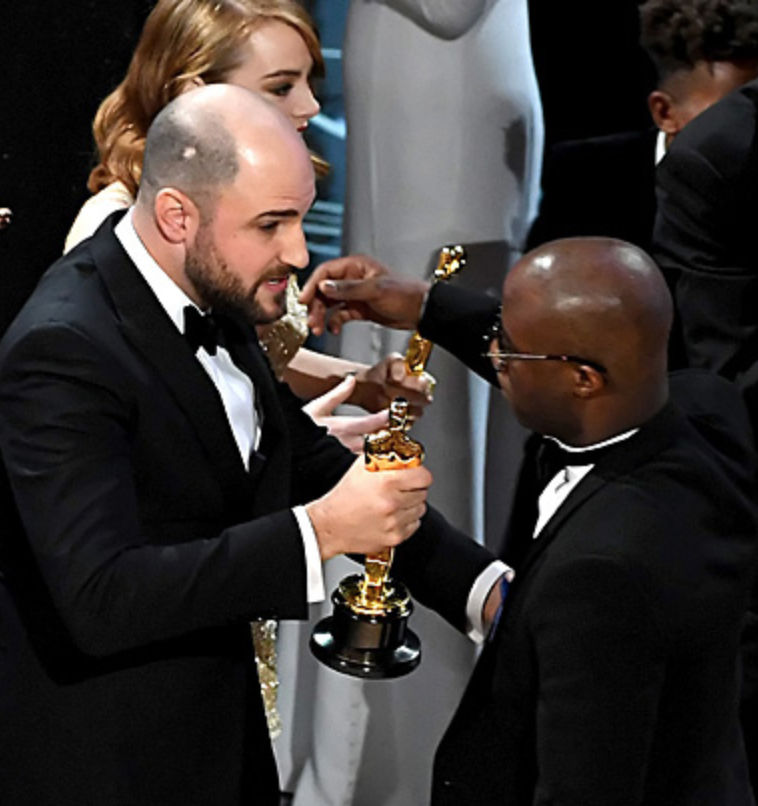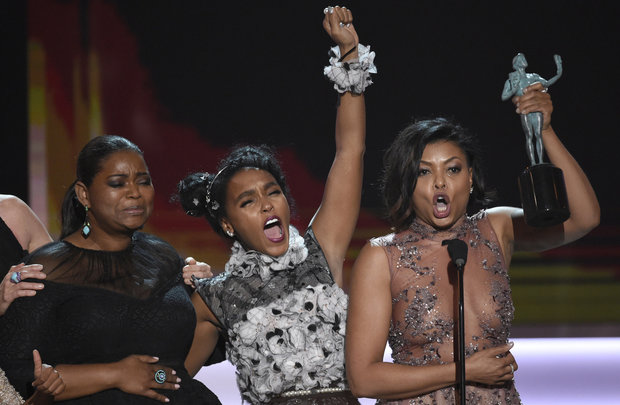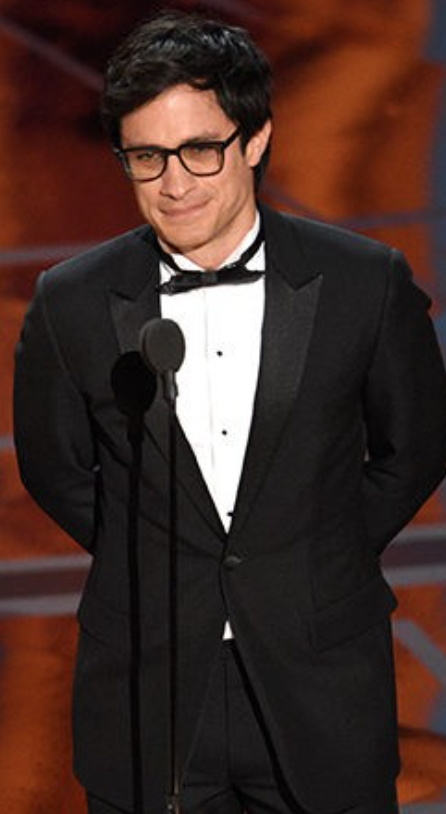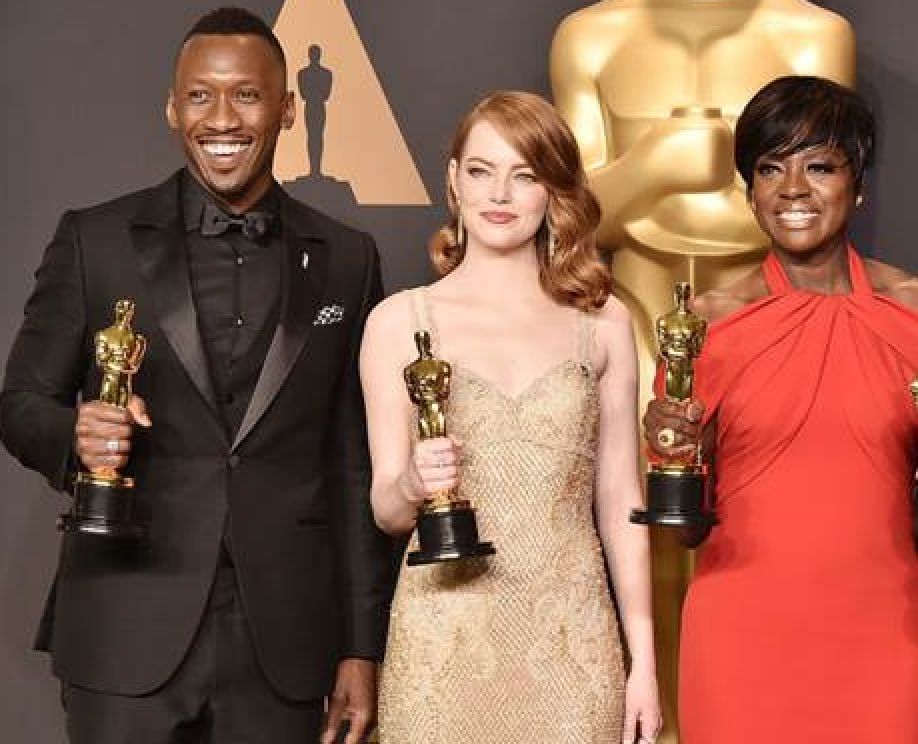 It was the dullest of times. It was the most scintillating of times.
It was the dullest of times. It was the most scintillating of times.
Was it the solar eclipse? Was it a dissatisfied underling thumbing their nose at the Pricewaterhouse Coopers power-that-be? As of this writing, no one really knows why it happened. All we know is that, as the clock crept to twelve o’clock midnight during the most boring Oscars telecast to date, “La La Land” was incorrectly named Best Picture, creating the biggest kerfuffle on live television since November 9, 2016. By the time “Moonlight” received its due, producer/director/writer Barry Jenkins’s acceptance speech was, well, eclipsed by the general confusion waking up audience members who had drifted off during this Tinseltown snoozefest.
Even the blandness had not been expected.
Prognosticators of the Eighty-ninth Academy Awards had anticipated a record-breaking “La La Land” sweep. They also had predicted a bevy of fiery anti-Trump speeches – especially if Meryl Streep had been granted a platform.Instead, even if Damien Chazelle’s meta-musical had nabbed Best Picture, it only would have won seven golden statues.
That said, records were broken. “La La Land” did receive a record-breaking fourteen nominations, and Chazelle became the youngest person to win best director. At eight hours, “O.J.: Made in America” became the longest film to win best documentary, fading the already-faint line between film and premium television. Already in possession of a Tony and an Emmy, Supporting Actress winner Viola Davis became the first black actor to win the Triple Crown of acting. (Given the Tony already scored by “The People v. O.J. Simpson,” you also could argue the incarcerated former NFL star is halfway to an EGOT by proxy.) Best Supporting Actor winner, “Moonlight” star, and all-around lovely human Mahershala Ali became the first Muslim actor to take home an Oscar. And people of color received more nods and wins than ever before. Lest this be written off as a capitulation to the #OscarsSoWhite controversy (not one actor of color was nominated in a performance or director category in 2015 and 2016), these honors were given for extraordinary work already in production or in the can by the time the Academy came under fire last year.
Yet for all the glass ceilings being splintered, Hollywood was unusually well-behaved, starting with Justin Timberlake’s aggressively feel-good opening musical number. (It read like an audition for a variety hour filmed in a 1970s time machine.) As the celebrities in attendance lumbered to their feet to gamely “rock out,” it seemed we were in for a gratingly long evening of #OscarsSoPolite. A high note was the surprise appearance of NASA alum Katherine Johnson, the real-life protagonist of “Hidden Figures”; a low one was the new accuracy of the phrase “Oscar-winning ‘Suicide Squad.’” Perhaps everyone was taking cues from mild-mannered host Jimmy Kimmel, who started off fiery – “Remember last year when it seemed like the Oscars were racist?” “This show is airing in more than 225 countries that now hate us!” – but quickly devolved into such mealy-mouthed schlock stock as Matt Damon-trolling (Two rich middle-aged guys teasing each other on camera? How outré!), tour bus-dumping, and mean tweets. Acceptance speeches for performance category wins were demure if stirring. Best Actor winner Casey Affleck was short and sweet, though he’d delivered serious anti-Trump vitriol at the previous evening’s Indie Spirits Awards. Davis, who should win a lifetime achievement award for Best Speeches, decreed: “Exhume those stories of the people who dreamed big and never saw those dreams to fruition!”
Only winners in non-performance categories aimed significant zingers at the current Administration. Accepting the Oscar for Best Adapted Screenplay, Jenkins acknowledged the Academy and the ACLU in one breath. Presenter Gael García Bernal said: “As a Mexican, as a Latin American, as a migrant worker, as a human being, I am against any form of wall that wants to separate us.” And we didn’t even see the Iranian director Asghar Farhadi, whose “The Salesman” won best foreign-language film, because he was boycotting the ceremony in protest of Mr. Trump’s ban against travelers from seven predominantly Muslim countries. His read statement: “Dividing the world into the us and our enemies categories creates fear, a deceitful justification for aggression, and war.”
Still, even the boldest of statements were so decidedly high road that our forty-fifth president was barely name-checked at all. It’s as if cinema en masse so feared becoming the latest target of our new, no-hold-barred regime that it avoided all explicit rebukes of it.
By the time attendees were bombed with candy parachutes, the only thing keeping some viewers up was a fantasy of a mani-cam-style closeups of celebrities eating – perish the thought! – refined carbohydrates. (Stars! They’re just like us!) Short of a couple wins for Mel Gibson’s “Hacksaw Ridge” (Hollywood loves nothing like a white-male comeback), no upsets had taken place: Davis’s nomination in the supporting rather than best actress category had secured her a lock; and Denzel Washington predictably was beat out by front runner Affleck for best actor, despite the sexual assault accusations plaguing the latter man. (Similar accusations had ruined Nate Parker’s chances earlier last year.) In fact, Denzel’s undisguised grimace brought some of the only spark besides all those skintight gold dresses comprising Oscars 2017 fashion. (Did everyone dress to manifest by costuming as the statues themselves?)
Certainly when Chazelle won his best director orange boy (see what we did there?), most home viewers packed it in for good. “La La Land” seemed like a total shoo-in for best picture, and those endless montages of past winners’ tepid speeches proved a better soporific than Ambient-flavored warm milk.
Then it happened. It seems fitting that “Bonnie and Clyde” duo Warren Beatty and Faye Dunaway were reunited to present the best picture award, though Beatty was looking more Richard Nixon (now!) than rakish robber as he slowly announced the “La La Land” win. As the LLL team swarmed the Dolby Theater’s stage, a visible backstage flurry suggested something was awry besides the fact that the feature-length equivalent of a 1990s Gap commercial had just bested the most powerful film of the decade. (I disgruntledly tweeted, “Man, Hollywood will reward any movie about its own navel!) At that point, “La La Land” producer Jordan Horowitz – earning his mensch stripes for life – gracefully acknowledged “Moonlight” actually had won.
Time stopped before the room exploded. Unwilling to fall on his own sword, Beatty stammered he’d been handed an envelope announcing Stone as best actress rather than “Moonlight” as best picture. Jenkins attempted to  regain his bearings: “To hell with dreams! This is true!” In the confusion the real lede was buried: that an independent film written and directed by black men about queer, poor men of color had just won the Academy Award.
regain his bearings: “To hell with dreams! This is true!” In the confusion the real lede was buried: that an independent film written and directed by black men about queer, poor men of color had just won the Academy Award.
Visions of sugarplums danced before many Americans’ eyes as they slept that night. Perhaps other films also incorrectly had been awarded best picture. (“Gladiator” and “Forrest Gump,” anyone?) Perhaps – perchance to dream! – the wrong person had been declared leader of the Free World.
One thing’s for sure: No matter how much Tinseltown tries to button up, its unique brand of subversion always reveals itself, like the most seductive of (Freudian) slips. Here’s to next year in Oscar-ville – ideally with a pantsuit-clad Kate McKinnon at the helm.
This was originally published at Signature.
